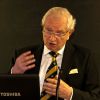The parallels between abortion and euthanasia or assisted suicide are often cited during debates, especially by those who recall the role played by the media and the courts in first liberalizing Canada’s abortion laws and later eliminating them. But over the past few weeks we have seen a striking difference emerge.
Decades ago, almost all media outlets supported liberalization of abortion laws. In recent weeks, however, media reaction to a B.C. court decision striking down Canada’s assisted suicide laws has been anything but unanimous. Even editorials supportive of the decision have acknowledged the vulnerability of the elderly and disabled, and pointed out the potential for abuse through a more liberal law.
Opposing the court decision, the Vancouver Province said, “Allowing doctors to kill patients nearing the end of their lives, even with their consent, cheapens the sanctity of life, no matter how horrible the disease a patient is suffering from.”
Providing safeguards for medical killing is delusional
Tragedy at a Montreal psychiatric facility should stop proponents of medicalized killing dead in their tracks.
On June 16, one day after the B.C. Supreme Court struck down Canada’s laws against euthanasia and assisted suicide, someone in the high security psychiatric unit of the Centre Hospitalier Université de Montréal asphyxiated a patient. On June 21, a second patient was suffocated.
But here’s the thing: neither death was recognized as a homicide, let alone raised alarm bells, until the next day when an attempt to choke a third patient to death was foiled. A former slaughterhouse worker with a lengthy history of violent crime, who checked himself into the ward the very day the first patient was killed, was charged June 27.
OTTAWA - The Catholic Organization for Life and Family (COLF) warns Canada is veering in a "dangerous direction" towards euthanasia and assisted suicide and urges Catholics to enter the public debate on end-of-life care.
"It is impossible to remain silent following the June 15 decision by Justice Lynn Smith of the Supreme Court of British Columbia in the Carter case," said COLF director Michèle Boulva in a July 4 release. "As citizens of a country which claims to be civilized, Catholics and all people of good will have the right and duty to counter any attempt to legalize euthanasia and assisted suicide, and also to promote palliative care and true compassion."
Bishops demand appeal of B.C. euthansia ruling
OTTAWA - Canada’s bishops have expressed dismay over a B.C. Supreme Court decision June 15 to strike down Criminal Code provisions against euthanasia and assisted suicide.
“I strongly urge the government to appeal this extremely flawed and dangerous ruling,” said Vancouver Archbishop Michael Miller in a statement released the day of the decision.
The government has until July 16 to file a notice of appeal.
I cannot abide bishop bashing.
The habit in some Catholic circles of remorselessly denouncing and denigrating our prelates for perceived failures to lead, to act, to show courage, to boss the world about, sets my teeth on edge.
It is difficult to imagine a role outside the world of electoral politics that requires a broader back, a thicker skin and a finer ability to manage expectations than that of a North American Catholic bishop in 2012.
Tragic ruling in B.C.
And so it begins.
The B.C. Supreme Court has overruled Parliament to decree it lawful for a doctor to kill Gloria Taylor. Canada’s first legal physician-assisted suicide will occur when (and if) Taylor decides to proceed, despite Criminal Code statutes forbidding assisted suicide and valid concerns that Canada is on a slippery slope towards indiscriminate euthanasia.
According to the legal logic of Madam Justice Lynn Smith, a disabled person’s constitutional rights must include an equal opportunity to commit suicide. Suicide is legal in Canada but aiding suicide is not. But when illness or disability makes someone physically incapable of killing themselves, they deserve a helping hand, Smith ruled.
Obvious to all but Fr. Gravel
Quebec’s euthanasia debate must be getting horribly confusing when even a Catholic priest doesn’t know the right answer to whether the practice should be legalized.
It must be doubly so when the priest is also a former MP who knows — or should know — that euthanasia can be made legal only by amending the federal Criminal Code.
Yet here was Fr. Raymond Gravel, the one-time Bloc Quebecois MP for a Montreal-area riding, musing about whether killing the elderly, the weak and the suffering might be just what the doctor ordered for Quebec’s health care system.
Quebec bishops, COLF oppose euthanasia recommendation
OTTAWA - Quebec’s Catholic bishops and the Catholic Organization for Life and Family (COLF) have expressed opposition to a Quebec committee’s recommendation to allow euthanasia under limited circumstances.
“While we are pleased that members of the commission recommend greater access to palliative care for all people, we disagree with the recommendations to change laws to recognize physician-assisted dying as appropriate end-of-life care,” the Assembly of Catholic Bishops of Quebec said in a statement. “Changing the terms ‘assisted suicide’ and ‘euthanasia’ to ‘physician-assisted dying’ does not change reality.”
Physician-assisted suicide a ‘slippery slope’
People who believe doctors should never kill a patient even when a patient asks to die are losing the political and cultural battle against euthanasia and physician-assisted suicide. Catholics must learn to articulate their arguments in positive ways, doctors, nurses and others heard at a Canadian Catholic Bioethics Institute presentation March 28.
A December poll by Forum Research found 67 per cent of Canadians support legalizing assisted suicide. In Quebec the number rises to 81 per cent. A Quebec government commission recommended March 22 that Quebec’s Attorney General no longer prosecute cases of physician-assisted suicide.
OTTAWA - Living with Dignity (LWD), a network of anti-euthanasia groups in Quebec, has condemned the province’s Select Committee on Dying with Dignity report’s support for euthanasia as “dangerous” and a “profound act of political betrayal.”
After holding consultations across the province last year, on Mar. 22 the committee recommended the legalization of euthanasia for people experiencing constant, unbearable physical or psychological suffering.
Quebec committee ‘manipulative’ on end-of-life care
A Quebec legislative committee’s call for legalized euthanasia might be a grave danger to Canada’s health care system. Its immediate and unquestionable menace, however, is the damage it does to democracy.
For the moment, the Select Committee on Dying With Dignity’s all-party report presented March 22 to the province’s National Assembly is in parliamentary and pre-election limbo. There is reason to hope its mad demand for legalizing doctor-administered assisted suicide in Quebec by 2013 will be lost in the dust of politicians hitting the campaign trail.
Some politicians just can’t understand what’s good for the goose...
Politicians given enough rope will invariably hang themselves, figuratively speaking of course.
Such is the case with Parti Quebecois justice critic Veronique Hivon, whose clamor for legalizing euthanasia and assisted suicide should, if there is any justice, now be choked off for good and all.
Madame Hivon came hard out of the chute to condemn Quebec Tory Senator Pierre-Hugues Boisvenu for his recommendation, later withdrawn, that our most notorious convicted killers be left alone in their cells with a length of state-supplied rope.
Morality has no chance facing off against the Charter
The next big battle facing Catholics is over euthanasia. Already a few preliminary salvos have been fired.
For example, an “expert panel” on euthanasia set up by the Royal Society of Canada recently reported: “The underlying premise — namely that all human beings are possessed of dignity in virtue of a special relationship to a God — is incapable of being used as a basis of public policy proven in the context of a democratic, multicultural and multi-faith society that must cleave to the strictures of public reason in ethical deliberation.”












